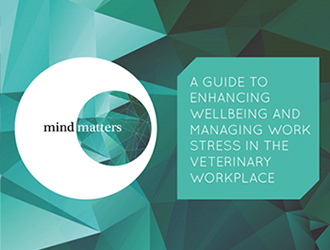-
-
- Council Members
- Role of Council Members
- Council meetings
- Council elections
- Previous election results
- Dr Louise Allum
- Dr Sam Bescoby
- Dr Andrew Clemence
- Dr Tshidi Gardiner
- Dr Reginald Godwin
- Paddy Gordon
- Dr Danielle Greenberg
- Dr Gerard Henry
- Dr Richard Hillman
- Dr Benjamin Kennedy
- Dr Tom Lonsdale
- Dr Darren Partridge
- Martin Peaty
- Alison Price
- Dr Peter Robinson
- Dr Jennifer Simmons
- Dr Sadie Spencer
- Dr Mary Thomas
- William Wilkinson
- Dr Lara Wilson
- Past-Presidents
-
-
-
-
-
- About extra-mural studies (EMS)
- EMS requirements
- Information for vet students
- Information for EMS providers
- Information for vet schools
- Temporary EMS requirements
- Practice by students - regulations
- Health and safety on EMS placements
- EMS contacts and further guidance
- Extra-mural studies fit for the future
-
-
- Code of Professional Conduct for Veterinary Surgeons
- Code of Professional Conduct for Veterinary Nurses
- Contact the Advice Team
- XL Bully dog ban
- 'Under care' - guidance
- Advice on Schedule 3
- Controlled Drugs Guidance – A to Z
- Dealing with Difficult Situations webinar recordings
- FAQs – Common medicines pitfalls
- FAQs – Routine veterinary practice and clinical veterinary research
- FAQs – Advertising of practice names
- GDPR – RCVS information and Q&As
Guide to enhancing wellbeing in the veterinary workplace published
26 January 2018
Our Mind Matters Initiative (MMI) has developed a guide on wellbeing in the veterinary workplace in association with Dr Elinor O’Connor, Senior Lecturer in Occupational Psychology at Alliance Manchester Business School, University of Manchester.
We launched MMI to increase the accessibility and acceptance of mental health support, and encourage a culture that better equips individuals to talk about and deal with stress and related issues.
 ‘A Guide to Enhancing Wellbeing and Managing Work Stress in the Veterinary Workplace’, will be launched at the Society of Practising Veterinary Surgeons/Veterinary Management Group (SPVS/VMG) Congress from 25-27 January 2018, in Newport. Designed for anyone with an interest in the wellbeing of the veterinary team, it provides practical advice to veterinary workplaces on managing stress and promoting wellbeing, alongside examples from the three winning practices of the 2016 MMI/SPVS Wellbeing Awards.
‘A Guide to Enhancing Wellbeing and Managing Work Stress in the Veterinary Workplace’, will be launched at the Society of Practising Veterinary Surgeons/Veterinary Management Group (SPVS/VMG) Congress from 25-27 January 2018, in Newport. Designed for anyone with an interest in the wellbeing of the veterinary team, it provides practical advice to veterinary workplaces on managing stress and promoting wellbeing, alongside examples from the three winning practices of the 2016 MMI/SPVS Wellbeing Awards.
Dr O’Connor said: “Addressing stress in veterinary work not only has benefits for the health and wellbeing of each person in the veterinary team, but the business case for reducing work-related stress is clear; stress is associated with poorer performance, increased absenteeism and higher employee turnover. The wellbeing guide provides information about proven techniques for reducing stress at work combined with suggestions for how they might be applied in veterinary workplaces.”
Lizzie Lockett, RCVS CEO and MMI Director, said: “Stress at work is an important issue right across the veterinary team. It is sometimes considered just an acceptable part of working in an environment that can be difficult to control, but things can change. By making wellbeing a priority practices can support individuals and help their team work better together, and thus provide the best treatment for the animals under their care. This leaflet unpacks some of the root causes of work-related stress and may be of particular interest to practice managers, line managers or health and safety officers.”
For a copy of the guide, please visit Mind Matters Stand 51 at SPVS/VMG Congress, or download a digital version from the Mind Matters website.